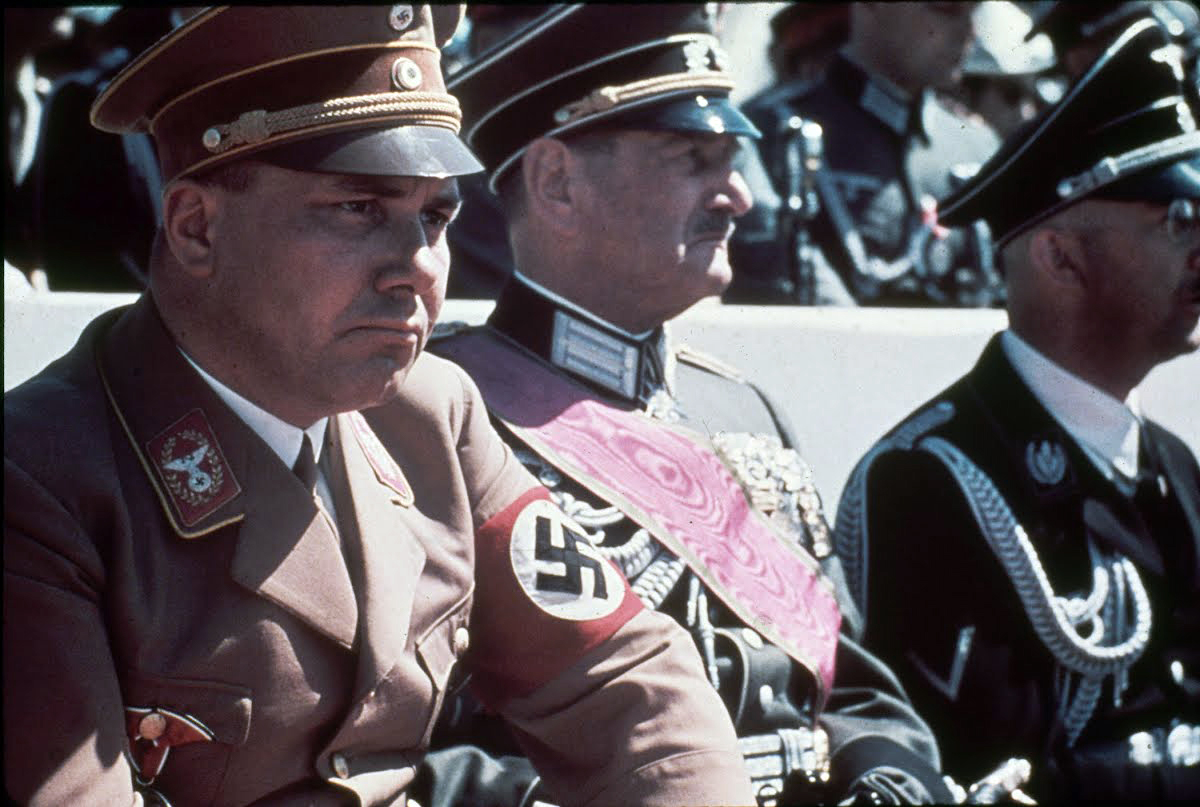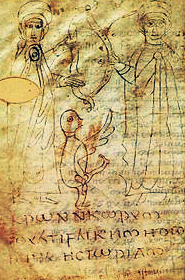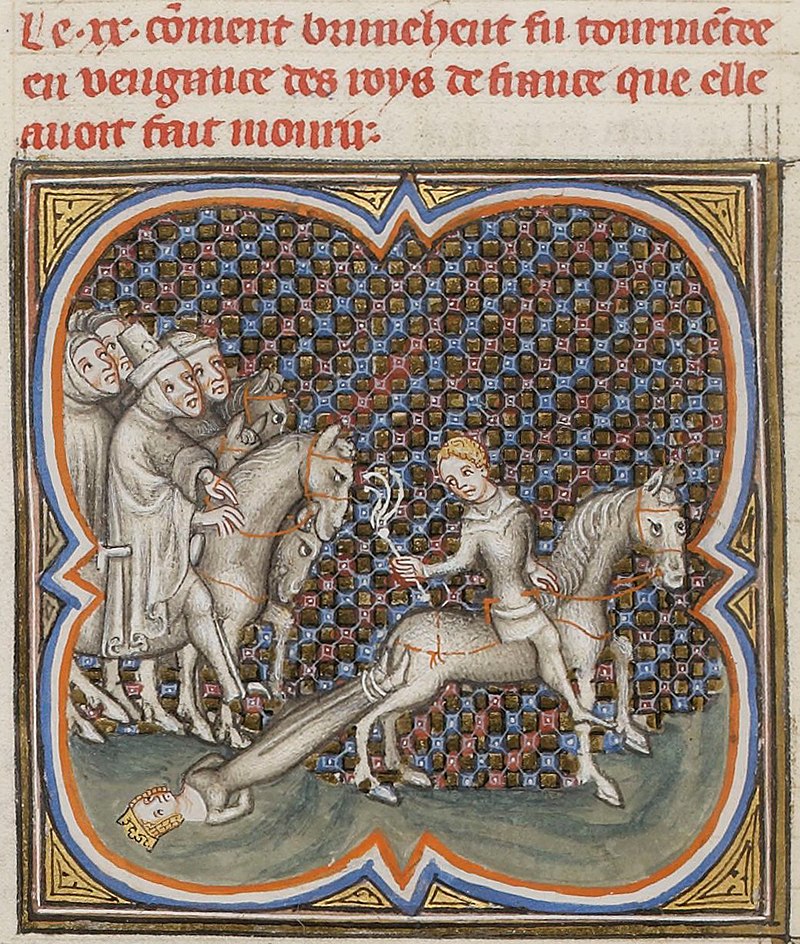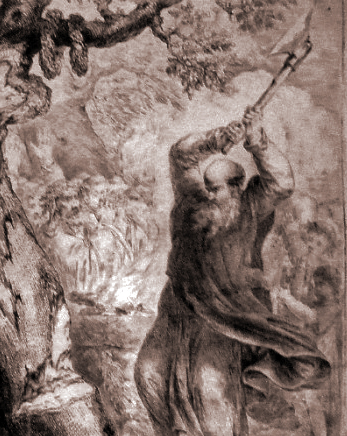If this rather light-hearted handling of the texts—and the examples could be multiplied—already suggests restraint about Picker’s tradition, the critical reserve is reinforced by two marginal notes by Bormann. In Picker’s record of the conversation of 12 May 1942,[1] the head of the Party Chancellery complains: ‘This transcript is in many cases quite inaccurate, since Dr Picker, when he took notes during the very long conversation, did not add to them who held this or that view!’ Quite obviously, then, Picker does not seem to have been sufficiently successful in reliably distinguishing Hitler’s views from those of his dinner guests or of party leaders not present who were quoted during the conversation. Even if the validity of the statement can no longer be verified, it must in any case call for caution. There is no evidence in the available material for Picker’s assertion that Bormann ‘blatantly corrected’ his notes. The objections are measured rather than sharp and unobjective. For example, Bormann found the note of the conversation of 4 July 1942 ‘in many cases not quite accurate’, for in a conversation about the Concordat, Hitler had stated: ‘In the case of a Reich regulation, we would have to go by the area that was furthest behind ideologically, i.e. particularly favourable to the enemy’. Picker must have considered this correction by Bormann to be justified, because he included the sentence in his text in a slightly modified form—without, of course, marking it as an addition by another hand—which in no way made the passage in question more precise or unambiguous.[2] In other respects, too, Picker seems to have found notes dictated by Bormann worthy of attention, for he incorporated them very generously into his edition of the Tischgespräche and did not always mark them as someone else’s intellectual property.[3]
Since Picker considers his transcripts made for the NSDAP party chancellery to be private property, a historical-critical edition of all the records from the Führer’s headquarters, as Eberhard Jäckel and Martin Broszat have repeatedly called for, is not to be expected in the foreseeable future. Given the deficiencies of Picker’s records, such an edition would be urgently desirable in the interest of international research.
A discussion of the insightful value of the source must first start with the motives that determined Martin Bormann to have Hitler’s monologues recorded. When he took over as head of the party chancellery after Hess’s flight to England in May 1941, he was aware that the political influence of the NSDAP in the country had dwindled because it lacked ideological unity and a clear course. He wanted to remedy this. Since he knew the close ties between the National Socialist elite and Hitler and was well aware that even the Reichsleiter and Gauleiter had not developed an independent position, only the party leader himself came into question as an interpreter of the world view. Bormann hoped that by fixing Hitler’s statements he could create a kind of compendium for the intellectual-political orientation of the NSDAP. Based on the party leader’s comments on concrete events and his declarations of intent in connection with domestic and foreign policy decisions, he wanted to coordinate and activate party work. To secure for the NSDAP the role of the ‘will-bearer of the nation’, which was always aspired to but never achieved, Bormann tried to immediately translate Hitler’s thoughts and views into political practice and incorporate them into the decrees and directives of the Party Chancellery. In possession of clear directives, the political leaders in the country had to succeed, he hoped, in emphatically reasserting their claim to leadership vis-à-vis state authorities, offices of the Wehrmacht and influential business circles.

Martin Bormann, left.
In some cases, the head of the party chancellery passed on Hitler’s statements as directives. For example, Alfred Rosenberg, Reich Minister for the Occupied Eastern Territories, received by letter on 23 July 1942 everything that Hitler had developed in conversation shortly beforehand in terms of views on Ostpolitik.[4] In another case, there is evidence that a note by Heim was made available to the responsible Reich Minister. Following the reception of the newly appointed Minister of Justice, Thierack, and his State Secretary at the Führer’s headquarters on 20 August 1942, Hitler abandoned the customary practice of not discussing at the table the matters under discussion. He criticised the administration of justice, which in his opinion was due to a lack of political insight, and then very firmly formulated his views and demands. Bormann gave the monologue transcript prepared by Heim to the minister so that he could familiarise himself in detail with his Führer’s thoughts and make them the guideline for his actions. This is what happened; in any case, Hitler’s formulations can be found in the speech that Thierack gave to the directors of the higher regional courts and the attorneys general on 29 September 1942.[5] What effect this speech had, whether it impressed or even influenced the judges, cannot be proven, however. Doubts are permitted here, because Hitler was repeatedly dissatisfied with the judiciary even later.
In general, the political effectiveness of the system should not be inferred from Bormann’s intentions and restless activity. The head of the party chancellery by no means immediately transformed every thought Hitler expressed into an order,[6] but kept precisely to the limits Hitler set for him. Thus, among other things, he was fundamentally forbidden to take a harder line against the churches, as he wished. The Reichsleiter also had no power of action in personnel policy. Hitler reserved the right to decide in all important cases. The Gauleiters of the NSDAP in particular, as well as the leaders of the branches and affiliated associations, knew this and therefore decided very high-handedly whether to heed or ignore Bormann’s directives. For example, the Gauleiter and Reichsstatthalter of Hamburg, Karl Kaufmann, weakened Hitler’s criticism of the judiciary by explaining to the judges in his Higher Regional Court district that they had given no cause for complaint, that the criticism was primarily directed at the Ministry and not at the individual judge.[7] But precisely in this way he contradicted the opinion of the party leadership, without being reprimanded for it. He was not required to drop the considerations and steer a harder course.
Bormann’s intimate knowledge of Hitler’s views undoubtedly enabled him to reinforce the party’s influence in important decision-making processes at the highest level. However, he was not able to bring the party onto a unified and clear political course. The distance from the Führer’s headquarters to Berlin and the Gau capitals was too far for that, and the war in any case considerably narrowed the scope for action. Joseph Goebbels, the Gauleiter of Berlin, later gave vent to his growing annoyance in his diary: ‘Bormann has turned the party chancellery into a paper office. Every day he sends out a mountain of letters and files that the Gauleiter, who is now in the thick of the fight, can practically no longer even read through’.[8] Ultimately, precise knowledge of Hitler’s worldview was primarily to Bormann’s advantage in that he strengthened his reputation by expressing the same views. Despite his restless zeal and the comprehensive information he received, he remained Hitler’s first assistant until his death.
____________
[1] Picker, Hitlers Tischgespräche, doc. 114, p. 283.
[2] Ibid., doc. 168, p. 414.
[3] Ibid., oc. 43 (24. 2. 1942), p. 135, clearly bears Bormann’s dictation mark.
[4] This was first pointed out by Alexander Dallin, Deutsche Herrschaft in Russland 1941-1945, Düsseldorf 1958, pp. 15 and 469/70. Letter from Bormann to Rosenberg, 23 July 1942, ND-NO 1878.
[5] Detailed references in Lothar Gruchmann, Hitler über die Justiz. Vierteljahrshefte für Zeitgeschichte 12, 1964, p. 91.
[6] Jochen von Lang, Der Sekretär. Stuttgart 1977, p. 229.
[7] Werner Johe, Die gleichgeschaltete Justiz. Organisation des Rechtswesens und Politisierung der Rechtsprechung 1933-1945, dargestellt am Beispiel des Oberlandesgerichtsbezirks Hamburg. Frankfurt/Main 1962, p. 176.
[8] Joseph Goebbels, Tagebücher 1945. Die letzten Aufzeichnungen. Hamburg 1977, p. 514. Similar complaints from other Gauleiters are also available from earlier times.
 Of my trilogy written in my native language the first two books are, once again, available to the public as announced on my site Hojas Eliminadas. I am checking the syntax of the third one before publishing the revised edition, which will be out in May, so I won’t be very active on The West’s Darkest Hour this weekend.
Of my trilogy written in my native language the first two books are, once again, available to the public as announced on my site Hojas Eliminadas. I am checking the syntax of the third one before publishing the revised edition, which will be out in May, so I won’t be very active on The West’s Darkest Hour this weekend.







